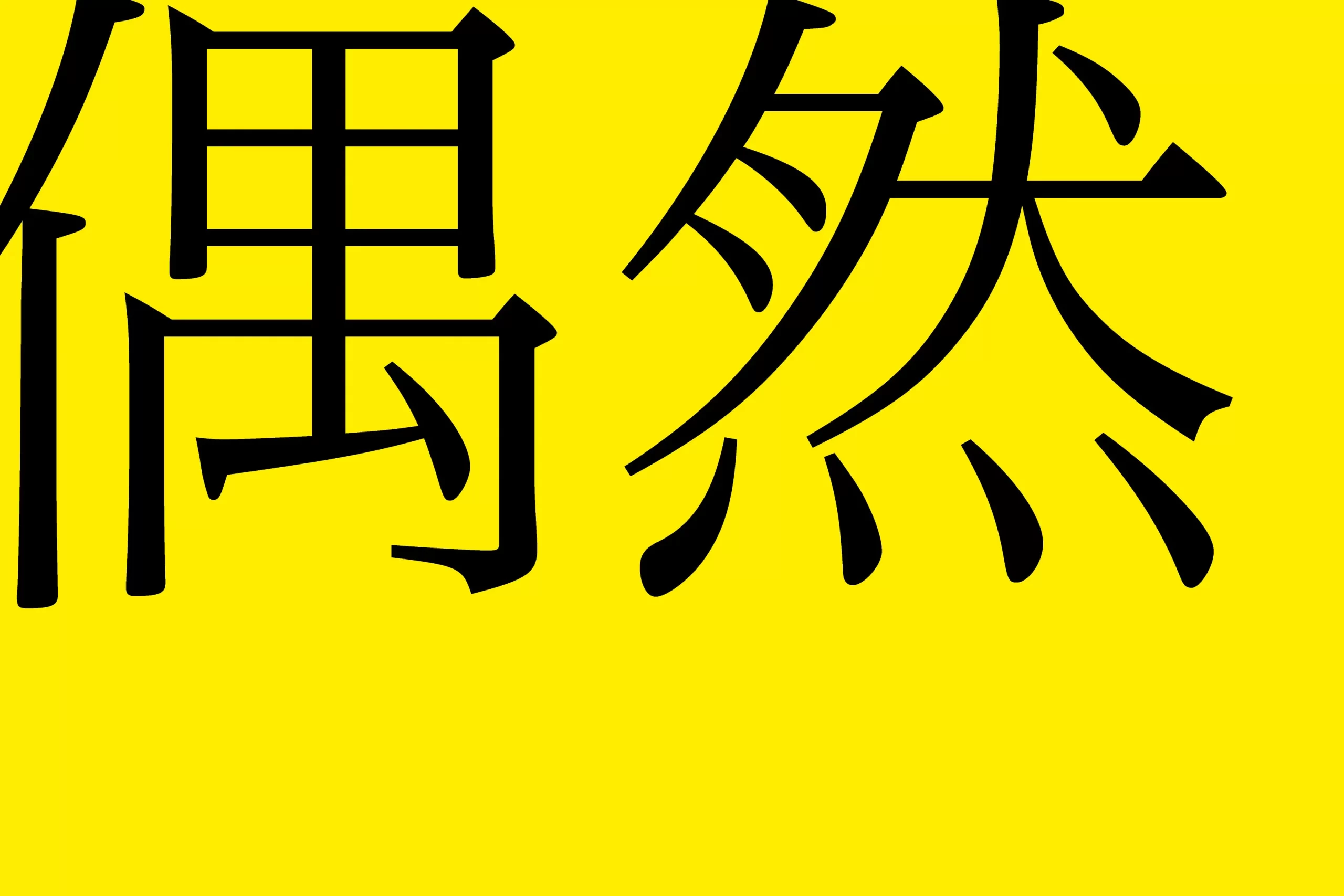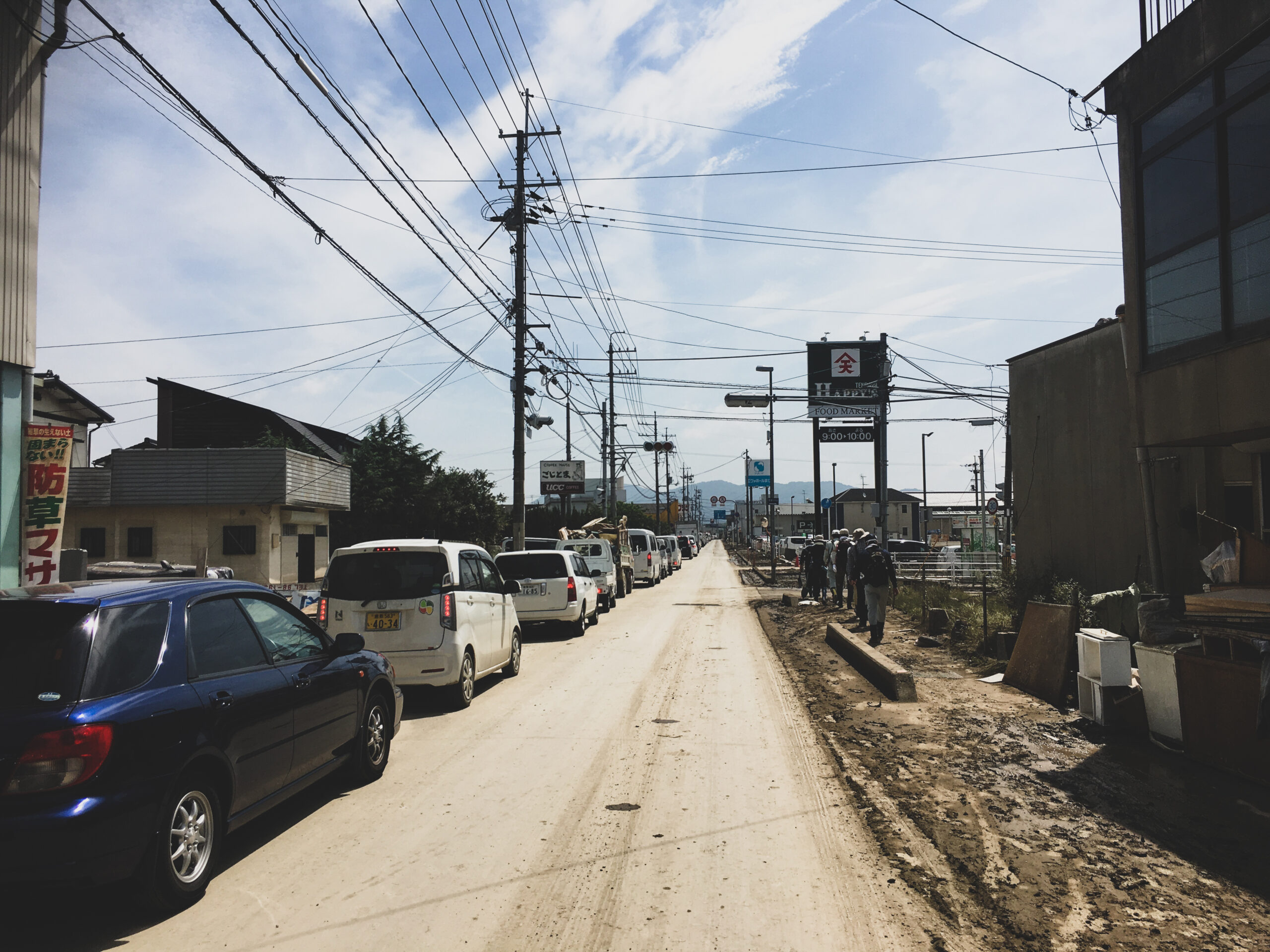
Participating in Disaster Volunteer Activities in Mabi, Kurashiki
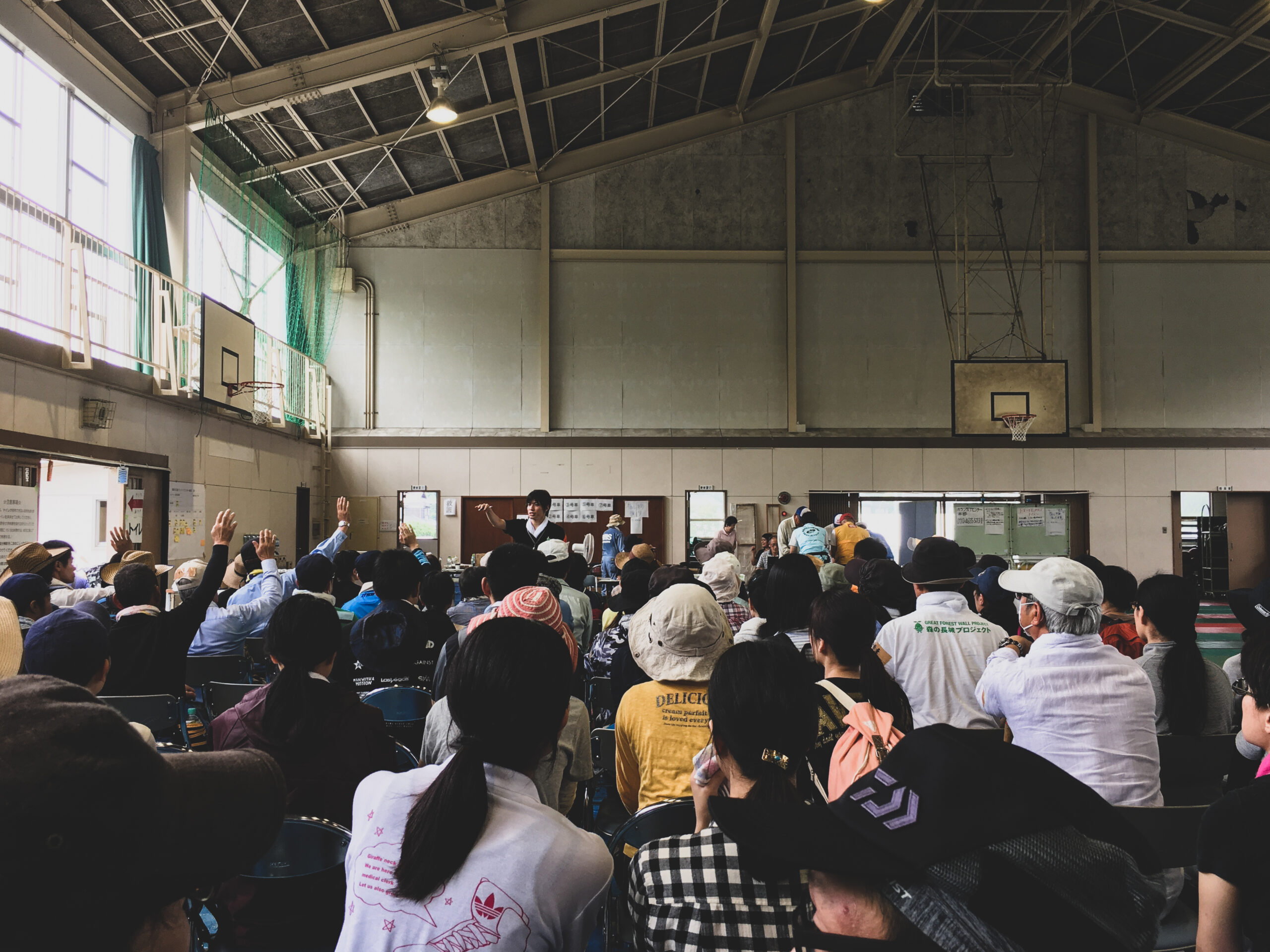
On July 12th and 13th, 2018, I took part in disaster volunteer activities in Mabi-cho, Kurashiki City, Okayama Prefecture. It had been approximately a week since heavy rain warnings were issued, and upon arriving in the local area of Mabi-cho, Kurashiki City, I witnessed the aftermath of the floods, which was more severe than anticipated, leaving me deeply aware of the extent of the flood damage.
Exhausting Removal of Water-logged Tatami Mats
During both days, I was dispatched to residential homes that had been flooded. The main tasks involved removing water-logged tatami mats, large chests of drawers, household altars, and damaged household appliances. Handling this flood-damaged furniture required significant physical strength, especially in the scorching heat. Particularly, moving the water-logged tatami mats, which became heavy and saggy without their usual firmness, proved to be a laborious task. For older and more spacious homes, there were multiple tatami mats to remove, making the work even more challenging. Due to the strenuous nature of this volunteer activity, three out of the nine members in our group had to leave midway on the second day. Although physical strength is essential for volunteering, it’s worth noting that not all tasks involve heavy lifting, and some tasks, such as sorting, are more suitable for individuals who prefer lighter work. If you plan to participate in volunteer activities in the future and read this article, it might be beneficial to confirm the type of work assigned when you start (the person assigning tasks usually provides a general description of the tasks).
Volunteer Work Hours and the Issue of Restroom Facilities
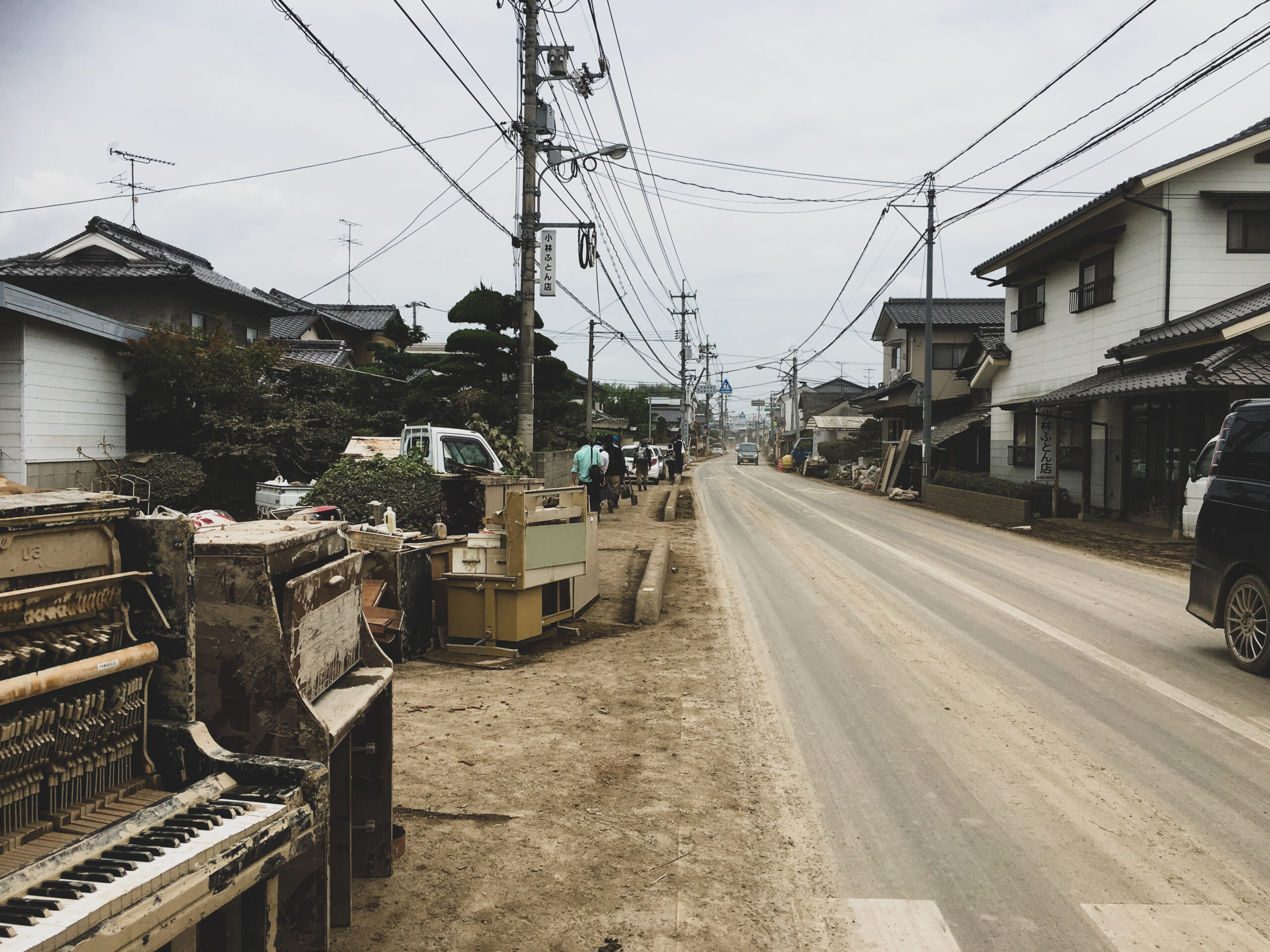
One issue I noticed was the length of the work hours. On the first day, July 12th, the work hours, including the time taken to travel to the local site in Mabi-cho, were from around 10 AM to 1 PM (approximately 4 hours). On the second day, July 13th, the work hours were from 10 AM to 3 PM (approximately 6 hours). Although we took short breaks for lunch, working for 6 hours in the scorching heat and engaging in physically demanding tasks felt considerably longer, especially when the previous day’s work lasted for only 4 hours. Moreover, both days had no nearby restroom facilities, making the 6-hour work shift physically challenging due to the lack of restroom breaks. Splitting the work into two sessions within a day, with each session lasting 4 hours, might be more manageable for volunteers in terms of both physical endurance and mental well-being. While considering such aspects during the work, it’s crucial to acknowledge the true difficulty experienced by the residents of the affected homes. They have endured one week of hardships both physically and mentally, yet, in front of us, they managed to maintain a cheerful and strong attitude while working together. Witnessing their perseverance encouraged us to provide as much assistance as possible.
Reliable Vehicles: Mini Trucks
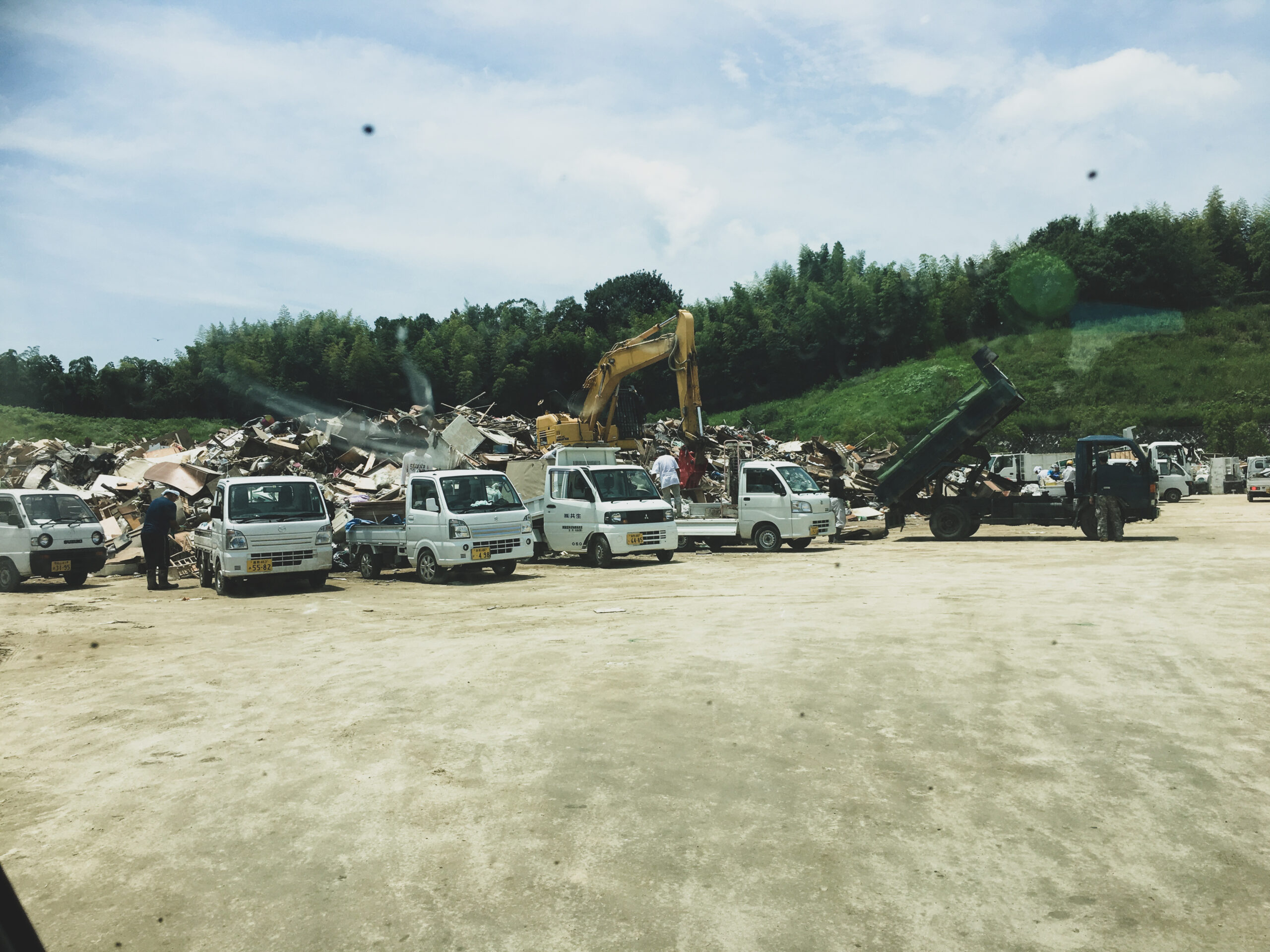
During this disaster, I found that mini trucks were incredibly useful. Perhaps due to the high number of farmers in the region, there were many mini trucks available. Based on my repeated round trips between the affected homes and the waste collection site, I learned that mini trucks can easily navigate narrow roads, have excellent maneuverability, can carry a substantial amount of cargo (such as waste), and are relatively sturdy and practical vehicles for work purposes.
Water Supply Disruptions
On the first day, the house we visited had water running from the tap but was not safe to drink. However, on the second day, the water supply had been completely cut off, and water distribution trucks from Kasahara City and Osaka were providing water to the area.
During the second day, one of the residents we met expressed something that left a strong impression on us, saying, “We thought we only needed to worry about sewage here, but it turned out to be much more than that.” In times of disasters like this, the value of wells is reconsidered. Interestingly, there were no wells near the site we worked on, but there was an article on Yahoo! News that caught my attention.
Link: “Water Shortages Continue, ‘Free Well Water’ Offered in Kurashiki, Okayama – Asahi Shimbun Digital (Internet Archive: Wayback Machine)”
At this point, I must mention a bit about one of our company’s clients. Yamanami Chiken is a company that specializes in well drilling, borehole construction, and ground surveys, primarily serving the Okayama Prefecture and the Chugoku and Shikoku regions. It might sound like I’m promoting their business, but they are truly a friendly company that can provide you with information and answer any questions related to well digging and construction. If you are interested, don’t hesitate to ask.
Link: “Sanyo Chiken – Well Drilling, Borehole Construction, and Ground Surveys in Kurashiki, Okayama Prefecture”
Of course, it goes without saying that if you are considering joining as a volunteer, bringing your own drinking water is essential (as well as food, of course). If possible, having 1.5 liters of water on hand would be recommended.
In Conclusion

Through volunteer activities and during such non-routine times like disasters, I have gained a deeper understanding of the issues that arise and what needs to be developed and designed for the future. If given the opportunity to contribute to redesigning the city under such circumstances, I would be eager to participate. I would like to express my heartfelt gratitude to the members of the same group who worked together as volunteers, even in challenging work environments. Thank you also to the residents of the affected homes, who warmly greeted us despite their difficult situation. Lastly, I sincerely hope that all those affected can return to their normal lives as soon as possible.

